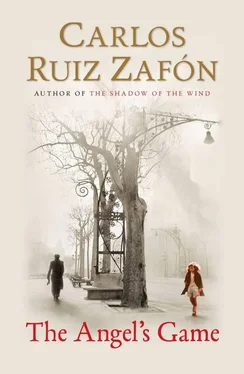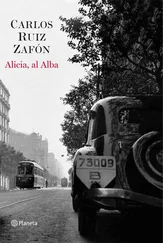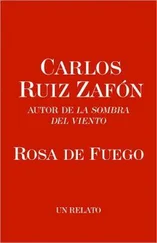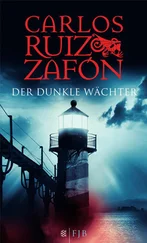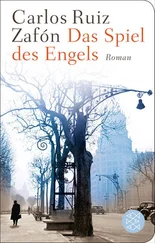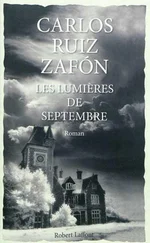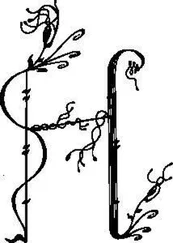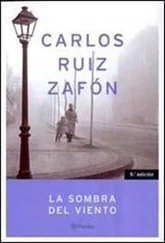The doctor was watching me as if he expected something from me, something that would answer all his questions.
‘I thought she had abandoned me,’ I began. ‘We were about to run away together, leaving everything behind. I had gone out for a moment to buy the train tickets and do an errand. I wasn’t away for more than ninety minutes but when I returned home, Cristina had left.’
‘Did anything happen before she left? Did you have an argument?’
I bit my lip.
‘I wouldn’t call it an argument.’
‘What would you call it?’
‘I caught her looking through some papers relating to my work and I think she was offended by what she must have taken as a lack of trust.’
‘Was it something important?’
‘No. Just a manuscript, a draft.’
‘May I ask what type of manuscript it was?’
I hesitated.
‘A fable.’
‘For children?’
‘Let’s say for a family audience.’
‘I see.’
‘No, I don’t think you do. There was no argument. Cristina was slightly annoyed because I wouldn’t let her have a look, but that was all. When I left, she was fine, packing a few things. That manuscript is not important.’
The doctor acquiesced, more out of courtesy than conviction.
‘Could it be that while you were out someone else visited her?’
‘I was the only one who knew she was there.’
‘Can you think of any reason why she would have decided to leave the house before you returned?’
‘No. Why?’
‘It’s only a question, Señor Martín. I’m trying to understand what happened between the moment you last saw her and her appearance here.’
‘Did she say what, or who, had got inside her?’
‘It’s just a manner of speaking, Señor Martín. Nothing has got inside Cristina. It’s not unusual for patients who have suffered a traumatic experience to feel the presence of dead relatives or imaginary people, or even to disappear into their own minds and close every door to the outside world. It’s an emotional response, a form of self-defence against feelings or emotions that seem unacceptable. But you mustn’t worry about that now. What matters and what’s going to help is that, if there is anyone who is important to her right now, that person is you. From what Cristina confided in me at the time, I know that she loves you, Señor Martín. She loves you as she’s never loved anyone else, and certainly as she’ll never love me. That’s why I’m asking you to help me. Don’t let yourself be blinded by fear or resentment. Help me, because we both want the same thing. We both want Cristina to be able to leave this place.’
I felt ashamed.
‘I’m sorry if-’
The doctor raised his hand to silence me. Then he stood up and put on his overcoat.
‘I’ll see you tomorrow,’ he said.
‘Thank you, doctor.’
‘Thank you. For coming here.’
The following morning I left the hotel just as the sun was beginning to rise over the frozen lake. A group of children was playing by the shore, throwing stones at the hull of a small boat wedged in the ice. It had stopped snowing and white mountains were visible in the distance. Large clouds paraded across the sky like monumental cities built of mist. I reached Villa San Antonio shortly before nine o’clock. Doctor Sanjuán was waiting for me in the garden with Cristina. They were sitting in the sun and the doctor held Cristina’s hand as he spoke to her. She barely glanced at him. When he saw me crossing the garden, he beckoned me over to join them. He had kept a chair for me opposite Cristina. I sat down and looked at her, her eyes on mine without seeing me.
‘Cristina, look who’s here,’ said the doctor.
I took Cristina’s hand and moved closer to her.
‘Speak to her,’ said the doctor.
I nodded, lost in her absent gaze, but could find no words. The doctor stood up and left us alone. I saw him disappear into the sanatorium, but not without first asking a nurse to keep a close eye on us. Ignoring the presence of the nurse, I pulled my chair even closer to Cristina’s. I brushed her hair from her forehead and she smiled.
‘Do you remember me?’ I asked.
I could see my reflection in her eyes, but didn’t know whether she could see me or hear my voice.
‘The doctor says you’ll get better soon and we’ll be able to go home. Or wherever you like. I’ll leave the tower house and we’ll go far away, just as you wanted. A place where nobody will know us and nobody will care who we are or where we’re from.’
Her hands were covered with long woollen gloves that masked the bandages on her arms. She had lost weight and there were deep lines on her skin; her lips were cracked and her eyes dull and lifeless. All I could do was smile and stroke her cheek and her forehead, talking non-stop, telling her how much I’d missed her and how I’d looked for her everywhere. We spent a couple of hours like that, until the doctor returned and Cristina was taken indoors. I stayed there, sitting in the garden, not knowing where else to go, until I saw Doctor Sanjuán reappear at the door. He came over and sat down beside me.
‘She didn’t say a word,’ I said. ‘I don’t think she was even aware that I was here…’
‘You’re wrong, my friend,’ he replied. ‘This is a long process, but I can assure you that your presence helps her – a lot.’
I accepted the doctor’s meagre reassurance and kind-hearted lie.
‘We’ll try again tomorrow,’ he said.
It was only midday.
‘And what am I going to do until tomorrow?’ I asked him.
‘Aren’t you a writer? Then write. Write something for her.’
I walked round the lake back to the hotel. The receptionist had told me where to find the only bookshop in the village, and I was able to buy some blank sheets of paper and a fountain pen that must have been there since time immemorial. Thus equipped, I locked myself in my room. I moved the table over to the window and asked for a flask of coffee. I spent almost an hour gazing at the lake and the mountains in the distance before writing a single word. I remembered the old photograph Cristina had given me, that image she had never been able to place, of a girl walking along a wooden jetty that stretched out to sea. I imagined myself walking down that pier, my steps following behind her, and slowly the words began to flow and the outline of a story emerged. I knew I was going to write the story that Cristina could never remember, the story that had led her, as a child, to walk over those shimmering waters holding on to a stranger’s hand. I would write the tale of a memory that never was, the memory of a stolen life. The images and the light that began to appear between sentences took me back to the old, shadowy Barcelona that had shaped us both. I wrote until the sun had set and there was not a drop of coffee left in the flask, until the frozen lake was lit up by a blue moon and my eyes and hands were aching. I let the pen drop and pushed aside the sheets of paper lying on the table. When the receptionist came to knock on my door to ask if I was coming down for dinner, I didn’t hear him. I had fallen fast asleep, for once dreaming and believing that words, even my own, had the power to heal.
Four days passed with the same rhythm. I rose at dawn and went out onto the balcony to watch the sun tint with scarlet the lake at my feet. I would arrive at the sanatorium around half past eight in the morning and usually found Doctor Sanjuán sitting on the entrance steps, gazing at the garden with a steaming cup of coffee in his hands.
‘Do you never sleep, doctor?’ I would ask.
‘No more than you,’ he replied.
Around nine o’clock the doctor would take me to Cristina’s room and open the door, then leave us. I always found her sitting in the same armchair facing the window. I would bring over a chair and take her hand. She was barely aware of my presence. Then I would read out the pages I’d written for her the night before. Every day I started again from the beginning. Sometimes, when I interrupted my reading and looked at her, I would be surprised to discover the hint of a smile on her lips. I spent the day with her until the doctor returned in the evening and asked me to leave. Then I would trudge back to the hotel through the snow, eat some dinner and go up to my room to continue writing until I was overcome by exhaustion. The days ceased to have a name.
Читать дальше
